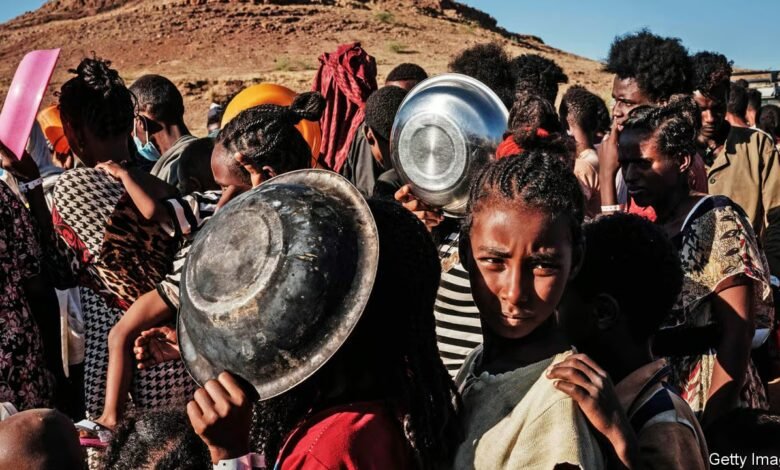
The UK has announced life-saving assistance for hundreds of thousands of Ethiopians at a pledging event at the United Nations (UN) in Geneva.
The humanitarian aid will provide lifesaving support for hundreds of thousands of Ethiopians, including over 435,000 children and mothers suffering from malnutrition and more than 230,000 needing access to emergency healthcare.
The new UK funding will treat the worst cases of acute malnutrition, covering critical gaps in nutrition supplies.
It will also increase access to safe water and sanitation while providing emergency cash and social protection to increase food security and resilience in vulnerable communities.
The UK’s support will boost Ethiopians’ access to primary health care services including access to ambulance care, antenatal care, and vaccinations, and ensure women have a skilled healthcare worker when they give birth.
The Deputy Foreign Secretary Andrew Mitchell announced the £100 million boost to UK funding at the UN Office for the Coordination of Humanitarian Affairs (OCHA) Ethiopia pledging conference in Geneva.
Also Read: Ethiopia Initiates First Bitcoin Mining Operations
The Funding Background
- Deputy Foreign Secretary Andrew Mitchell visited Ethiopia in February, where the UK announced £100 million for Ending Preventable Deaths.
- Forecasts indicate that the number of critically food-insecure people is projected to peak at 10.8 million between July and September. Malnutrition rates in several regions have significantly increased, surpassing critical thresholds.
- The White Paper and Global Food Security Summit (GFSS) and 2023 campaign set the stage for renewed UK leadership on humanitarian action and food security. This includes a strong focus on resilience building, prevention of malnutrition through the health system, and more climate-resilient agriculture and food systems.
- Last year the UK doubled its humanitarian funding to Ethiopia from £42 million to £80 million in light of its increased needs. This year the UK will continue to scale up its work, providing £100 million for humanitarian assistance to avert a serious humanitarian crisis.
- £30 million of this funding will be used to treat acute malnutrition for those in greatest need, covering critical gaps in nutrition supplies.
- The remaining funding will target health, water and sanitation deficiencies as part of efforts to prevent and reduce malnutrition while funding emergency cash and social protection to increase food security and resilience for vulnerable communities.
World’s Largest Humanitarian Crises
Ethiopia faces one of the world’s largest humanitarian crises, with over 21 million people in need of assistance.
Over 15 million people face food insecurity, and over 4 million people are internally displaced.
Tigray and Amhara are some of the worst affected regions, with an El Niño-induced drought continuing to affect close to 5 million people.
“The humanitarian crisis in Ethiopia is at a critical level. When I visited earlier this year I saw first-hand how conflict and drought are devastating communities – with women and young children being the hardest hit,” said Deputy Foreign Secretary Andrew Mitchell.





